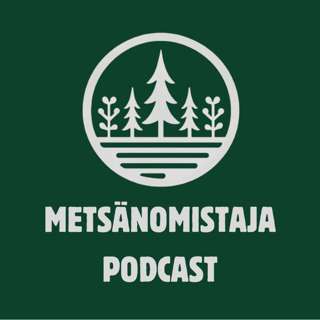
5,000 worlds and counting: the success of TESS
Michelle Kunimoto was one of Forbes magazine’s 30 Under 30 in science. Now she leads the most successful search for exoplanets that relies on data delivered by the Transiting Exoplanet Survey Satellite or TESS. She shares this fast-growing catalog of worlds in her first Planetary Radio conversation. Bruce Betts and Mat Kaplan also kick off a new series of great prizes in the What’s Up space trivia contest. Discover more at https://www.planetary.org/planetary-radio/2022-michelle-kunimoto-tessSee omnystudio.com/listener for privacy information.
2 Maalis 202248min

Astrobiologist David Grinspoon on life, the universe and everything
Astrobiologist, planetary scientist, author and science communicator David Grinspoon has just been named a lifetime fellow of the American Association for the Advancement of Science. He returns to Planetary Radio for a wide-ranging conversation about the state of our search for life across the solar system and beyond. We also learn what it was like to grow up in a home visited regularly by Carl Sagan and Isaac Asimov. Plus, get out your pencils and calculators! Bruce Betts delivers another cosmic arithmetic challenge in the space trivia contest. Discover more at https://www.planetary.org/planetary-radio/2022-david-grinspoonSee omnystudio.com/listener for privacy information.
23 Helmi 20221h 4min

Saving the world one telescope at a time: The Shoemaker NEO grant winne
The Planetary Society has awarded another eight Gene Shoemaker near-Earth object grants to outstanding amateur astronomers and observatories around the world. We’ll meet recipients from Chile, Croatia and the United States after chief scientist Bruce Betts tells us about the program. Bruce will then return with Mat Kaplan for yet another What’s Up tour of the sky and a new space trivia contest. Discover more at https://www.planetary.org/planetary-radio/2022-shoemaker-neo-awardsSee omnystudio.com/listener for privacy information.
16 Helmi 202256min

The weather on brown dwarfs, and worlds on the eve of destruction
Astrophysicists Sam Grunblatt and Johanna Vos are colleagues at the American Museum of Natural History in New York. Sam’s team has discovered giant worlds that are about to be devoured by their expanding stars, while Johanna has detected weather on brown dwarfs, those plentiful worlds that are bigger than planets but smaller than stars. Later, Bruce Betts takes the Olympics beyond the edge of our solar system with this week’s space trivia contest. Discover more at https://www.planetary.org/planetary-radio/2022-grunblatt-vos-brown-dwarfs-giant-worlds-near-endSee omnystudio.com/listener for privacy information.
9 Helmi 202251min

Space Policy Edition: JWST and the politics of mega-science (with Robert Smith)
Robert Smith shares the story of how the astronomical community decided upon the JWST as the follow-up to the Hubble Space Telescope, the coalition politics required for mega-projects like Hubble and JWST, and how that dynamic shapes modern science. Dr. Smith holds a Ph.D. in the history and philosophy of science from the University of Cambridge. He is a professor at the University of Alberta. His book, The Space Telescope: A Study of NASA, Science, Technology, and Politics, was released in 1989. Discover more here: https://www.planetary.org/planetary-radio/robert-smith-jwst-big-scienceSee omnystudio.com/listener for privacy information.
4 Helmi 20221h 20min

Nobel laureate John Mather: The promise of the James Webb Space Telescope
The JWST’s instruments have been turned on. Now begins the months-long preparation for observations that will reveal our universe as never before. 2006 Nobel Prize for Physics laureate John Mather is the senior project scientist for the new telescope. He shares his hope for what’s to come and a look back at how this mighty instrument came to be. He and Mat Kaplan also take a deep dive into the origin of the cosmos. Bruce Betts says early risers have a treat waiting for them in the predawn sky. Discover more at https://www.planetary.org/planetary-radio/2022-john-mather-jwstSee omnystudio.com/listener for privacy information.
2 Helmi 20221h 3min

Worlds of snow and ice
From Venus to Pluto, our solar system contains a myriad of planets, moons and other bodies whose surfaces are covered in snow and ice made of water and other exotic stuff. Saturn’s moon Enceladus is among the most intriguing. Colin Meyer, Jacob Buffo and their associates have modeled its ice and the plumes that emanate from the moon’s south pole. These geysers may not originate in the ocean deep below. Planetary Society editor Rae Paoletta is also fascinated by the worlds with ice-like deposits and activity. Bruce Betts keeps us out there with a Titanic random space fact and a new space trivia contest. Discover more at https://www.planetary.org/planetary-radio/2022-meyer-buffo-enceladus-plumesSee omnystudio.com/listener for privacy information.
26 Tammi 202250min

Curiosity rolls on: Mars Science Laboratory project scientist Ashwin Vasavada
We are approaching the 10th anniversary of Curiosity’s arrival in the Red Planet’s Gale crater. The rolling laboratory is still making profound discoveries as it reveals beautiful vistas and closeups. Project scientist Ashwin Vasavada shares some of the most significant finds in the last year. We’re deep into winter in the northern hemisphere, making Orion, Mat Kaplan’s favorite constellation, hard to miss in the night sky. Bruce Betts tells us there’s much more to see in this week’s What’s Up. Discover more at https://www.planetary.org/planetary-radio/2022-ashwin-vasavada-curiosity-updateSee omnystudio.com/listener for privacy information.
19 Tammi 202251min






















